Italian fiction is enjoying something of a worldwide renaissance, thanks in part to the popularity of Elena Ferrante’s Neapolitan Novels, which have been translated into more than 40 languages, becoming global bestsellers and inspiring the hit HBO series My Brilliant Friend.
Of course, Italy has a long and varied history of classic and award-winning novels. From classic authors like Dante Alighieri and Giovanni Boccaccio to more modern Italian masters like Umberto Eco and Italo Calvino, Italian authors have always made strong contribution to literature. Whether you’re looking for famous Italian books or authors who have yet to become famous abroad, these 10 unmissable Italian fiction books will help you explore everything Italian literature has to offer.
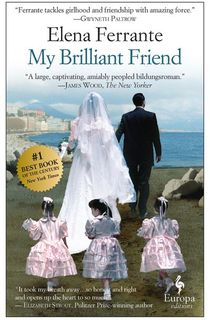
My Brilliant Friend
Declared the #1 Best Book of the 21st century by the New York Times, Elena Ferrante’s “enduring classic” (Atlantic) about the lifelong friendship between two women from Naples kicks off in this unforgettable first book which begins her beloved series of Neapolitan Novels.
Hailed as “one of modern fiction’s richest portraits of a friendship” by NPR’s Fresh Air, My Brilliant Friend helped to catapult Elena Ferrante to the top ranks not only of Italian novelists, but writers worldwide, leading The Boston Globe to enthuse that “everyone should read anything with Ferrante’s name on it.”
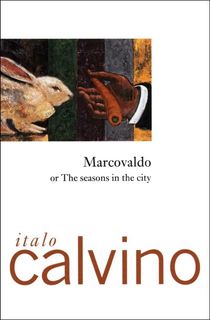
Marcovaldo
The Guardian called Italo Calvino “the greatest Italian writer of the 20th century,” and there’s no better place to see why than in this “gentle” book that is “insistent on fable-like charm” (Kirkus Reviews).
The titular Marcovaldo is an unskilled laborer in a north Italian city yearning for a more pastoral existence in these linked stories and vignettes. Yet, his attempts at living a simpler life rarely work out quite as he expects, and the results are stories of the surreal and whimsical that show Calvino at his best and most humane.
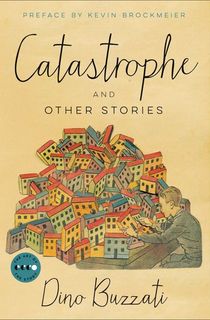
Catastrophe
“An evocative collection that might pull the rug from under your feet” (Kirkus Reviews), Catastrophe collects some of the best and strangest stories of celebrated Italian short story writer Dino Buzzati.
“Frightening, lyrical, and provocative” (New York Times), the stories contained within feature “shades of Fellini, shades of Dickens, shades of the great Italian horror director Mario Bava” (Los Angeles Times) and a series of bewildering and sometimes haunting fantasies that reveal both the nature of the human spirit and “something of the national mood” as they “portray delicate psychologies, and are themselves psychologically delicate, full of premonitions and subtle turns” (New Yorker).
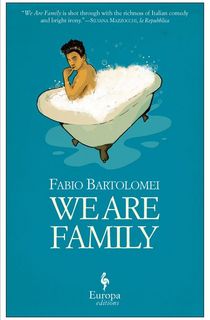
We Are Family
Al Santamaria is a child prodigy, and he has what he believes is the best family in the world. But even the best families – and the most brilliant children – are not without their problems in this “zanily inventive” (Seattle Times) novel that “reads like an Italian sitcom” (Foreword Reviews).
Al’s adventures include both the fanciful as he engages with his own imaginary friends and the very real as his family struggles to find a place to live. The result is an “amazing novel” that will “move you and make you laugh” (Elle) from an acclaimed writer who is a growing star in the Italian literary world.
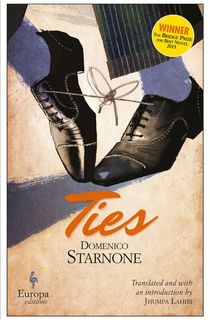
Ties
Winner of Italy’s most prestigious literary award, the Strega, Domenico Starnone is a beloved stylist, and his thirteenth novel has been hailed by the New York Times as his “leanest, most understated and emotionally powerful.”
This “scalding and incisive” (Library Journal) short novel about a marriage that gradually comes undone in the wake of an affair was also named a Best Book of the Year by Kirkus Reviews and the Sunday Times and was the winner of the Bridge Prize for Best Novel. And it’s a perfect introduction to one of Italy’s most celebrated writers.
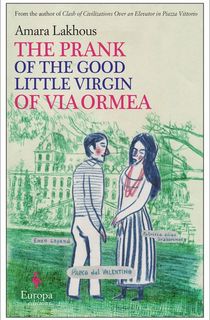
The Prank of the Good Little Virgin of Via Ormea
Described as a “novelist of culture clash” (Bookforum), Amara Lakhous was born in Algiers but since coming to Rome has been the recipient of Italy’s prestigious Flaiano Prize.
The Seattle Times called his writing “wonderfully offbeat,” and a perfect introduction is this tale of a journalist from Turin who comes to investigate allegations that a local girl was assaulted by two Romani boys. The result is an exploration of identity and a “farcical whodunit” that reflects a changing and increasingly multicultural Italy from a “talented new writer” (New York Times).
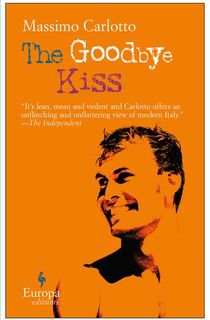
The Goodbye Kiss
“Hailed as the master of the Mediterranean noir” (Publishers Weekly), Massimo Carlotto has been called “the best living Italian crime writer” (Il Manifesto).
An ex-con himself, Carlotto puts his criminal experience to work in “perhaps the most difficult kind of noir novel to pull off” (Booklist) as he tells the story of Giorgio Pellegrini, a womanizing former left wing radical who is willing to resort to anything —even selling out his old comrades, or out-and-out-murder—in order to claw his way back to a place of respectability in Italian society.
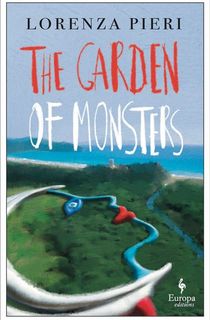
The Garden of Monsters
In this rural epic about family loyalties and rivalries in a changing Italy, Lorenza Pieri adds “a luminous voice” (Vanity Fair) to “a robust tradition in modern Italian literature […] the novel of adolescent disenchantment” (Literary Hub).
As Italy’s economic and social realities change, so too does life change for two families in the Italian countryside, and fifteen-year-old Annamaria finds herself caught in the middle in this “complex, vivid mosaic of the human heart and its revolutions” (Corriere della Sera) which “succeeds as both a family saga and a tender Bildungsroman” (Financial Times).
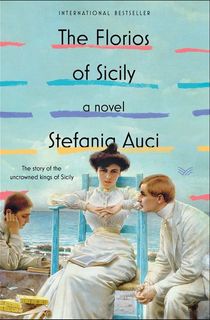
The Florios of Sicily
The bestselling first novel in the saga that inspired the Hulu Original Series The Lions of Sicily, this epic bestseller “focuses a panoramic lens” (Kirkus Reviews) on the lives of one of Italy’s most famous – and infamous – families.
Beginning during the Napoleonic Wars, The Florios of Sicily tells the story of the rise of that city’s real-life Florio family, entrepreneurs who would leave a mark that has led them to be called the “uncrowned kings of Sicily.” From their most epic achievements to the smallest details of their personal lives, see why La Repubblica raved that, “When I read it, I knew it was perfect.”
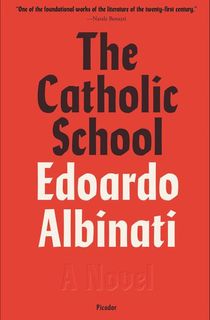
The Catholic School
In 1975, two young women were kidnapped, sexually assaulted, and violently attacked by three young men from affluent families. One of them died in the ordeal, while the other narrowly escaped with her life.
The event became known as the “Circeo massacre,” and it is against this harrowing backdrop that Edoardo Albinati sets his Strega Prize-winning novel that “is part true crime, part coming of age, and explores sex, violence, and masculinity in contemporary Italy” (A.V. Club). The result is a “vast, philosophically charged novel of education, faith, and crime” (Kirkus Reviews) that draws on Albinati’s own autobiographical details of attending school in the same halls as the perpetrators of the heinous crime.
